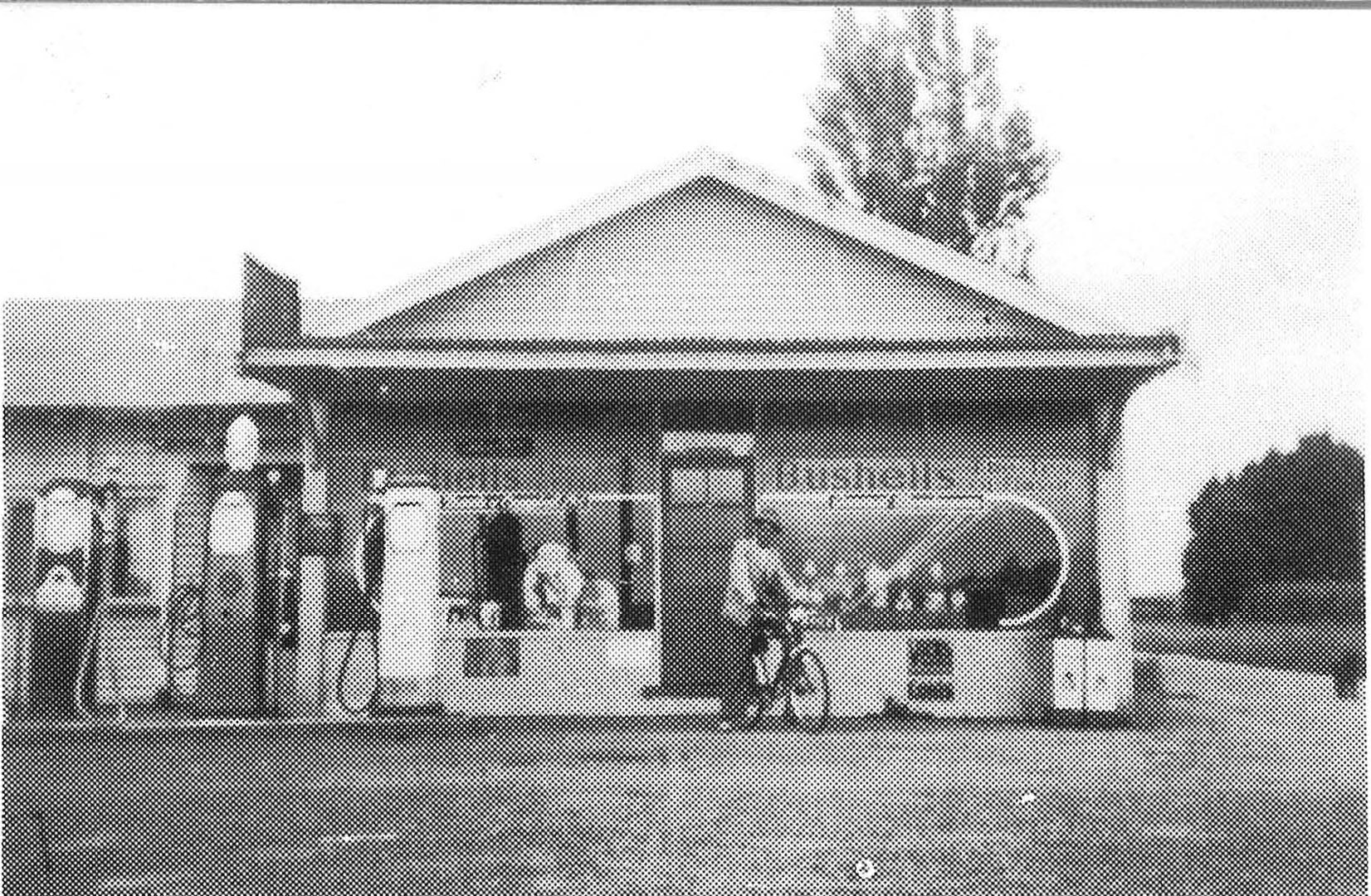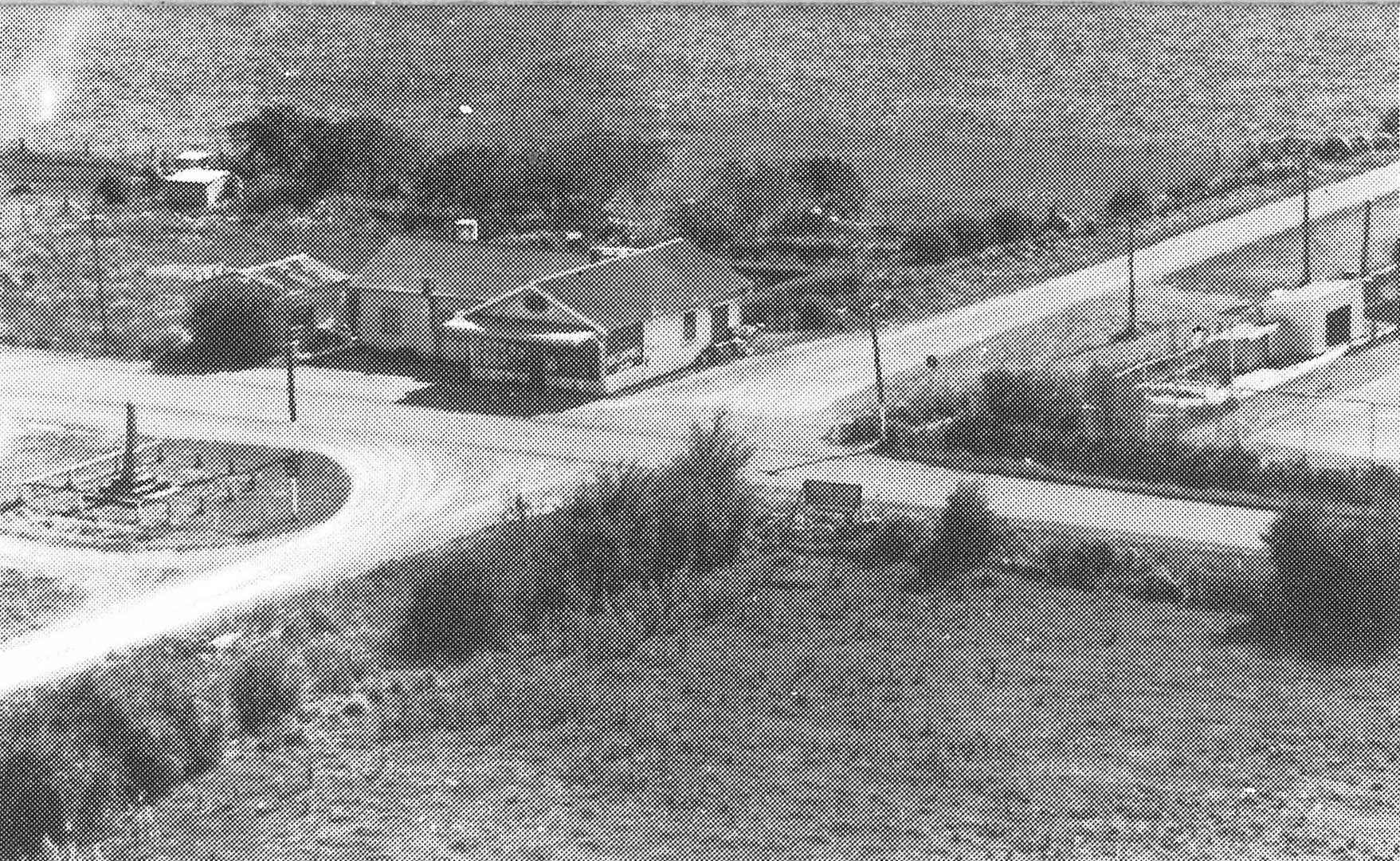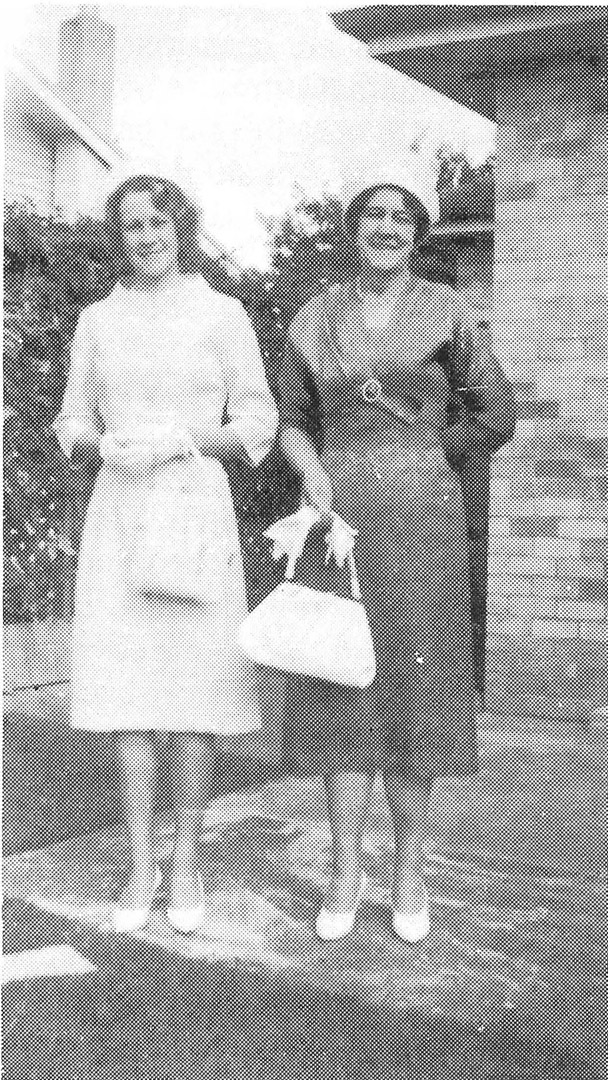
SPENDING winter camping out would be considered somewhat eccentric in today's world. The chill winter mornings, the Waikato fogs and the dismal rain were only a few of the hardships endured by the Shine family when they moved to Eureka.
But had it not been for such off-beat, adventurous souls, Eureka would never have acquired its colourful corner store.
In the autumn of 1923 Patrick Shine, his wife, May, and daughter, Audrey, visited Eureka and in 1925 returned to stay. They passed the next six months in a tent on the corner of the crossroads opposite Eureka School. During that time they built their first store. Came the spring, Eureka's local store was open for business.
The settlers welcomed the opening of the store as prior to this time many travelled by horse and gig to Hamilton to buy their monthly groceries.
Butchers, bakers and, grocers from Cambridge, Morrinsville and Hamilton also called in at Eureka plying their wares. Residents recall a Mr Sarich who made monthly visits from Morrinsville. Riding in on his horse and trap he made his deliveries and took down the settlers' orders for the next month. Sugar was delivered in 70 pound bags and there were 50 pound sacks of flour. In the days before refrigerators were easily available the butchers visited twice weekly.
One butcher sat high on his cart which was loaded with various cuts of meat. He let the tail door drop and used that as his cutting board when he called on the homesteads. The meat was stored in meat safes then. Hams that were cured on the farms were hung from the ceiling in the kitchen. Travelling salesmen also called in around Christmas time selling material and other paraphernalia.
Once the Shines were in business the settlers no longer had to plan their grocery lists a month in advance. All their daily requirements were stocked at the local store, from hardware to footwear.
Mrs Audrey Dunlop (nee Shine) was just 11 years old when her family moved to the district. Her father first latched onto the idea of a local store from talking to passing travellers, she said.
"Living in a tent seems very long ago now but at the time it was quite an adventure. About sixty years is a long time to recall and I must be the last pioneer in our family. It is amazing how we managed to keep warm without electric blankets and central heating and hardly ever caught a cold. My father decided it would be a good corner for a store and bought the land, about three-quarters of an acre, from Mr Mel Masters and we were almost in business. It must have been a stepping out into space experience for my parents but I cannot remember ever feeling any sense of insecurity."
Their "home" that first winter measured approximately four metres by four metres. The tent was large enough to hold a double bed, a single bed and a kitchen. There were even partitions for the bedrooms. Despite the chill outside Mrs Shine managed to create a cosy atmosphere within.
"The land from the store back to the hill was rough swamp with beautiful blackberries galore-then Lester Masters developed it into good farmland and ruined the picking," Mrs Dunlop reminisced.
"After the store opened the waggons used to call on way home from the factory. Some fair races were run on the way to the factory and as the four roads met at our corner we witnessed a few near misses-no road code then! We soon learned which horses would kick and bite. The late Mr Townsend (the family moved to Eureka in 1917) had a white one which would bite anyone within reach and it was amazing how its neck could stretch.
"Later we delivered three days per week ... rice, sago, tapioca and sultanas were five pounds for a shilling. A large bar of soap was elevenpence ha'penny. The children spent their pennies and even if they didn't have a large amount to spend they received good value: Sante bars, a penny; five ounces of chocolate for a shilling".
By 1928 it was obvious that the store and the living accommodation had to be improved. A new building and living area were built and the old store was used as their garage. A mail car used to bring the mail into Eureka then and the settlers used to pick up, their mail, paper and bread on their way home from the factory. Waggons and horses were always tethered outside in the early evening, their owners never missing the opportunity to catch up on the affairs of the district. From 1929 the Post Office became part of the store. From then on for many, many years the store became the real social centre of the district.
* * * *
Though-accustomed to the hard work and tough lifestyle, those pioneers still managed to find the time to enjoy life. On Sundays the teenagers would gather outside the store or in the paddock opposite for a chat or a social game.
The children would sing or skite on the front step of the store after school. The plum hedge which bordered the Masters' property on Station Road was irresistible. At lunchtimes or after school the children raced down there.
The juiciest plums always seemed to be the ones at the top. Those with horses used to stand on their backs and reach up high. Townies with rustic yearnings came picnicking at Eureka and they pinched a few plums too. They never did any damage and in those days no-one worroed-there was plenty to go around.
Whenever the drains around Eureka flooded, so did the creek and the children raced off down there with their old bath tub toys. The simple pleasures of eeling or shooting birds with catapults seemed to give them hours of delight.
Swaggers with their billies on their backs were a common sight in Eureka in the early. days. They never worked but were well thought of. In return for food they were quite willing to do a bit of weeding or help with some odd job.
A former Eureka resident, Mr Dick Casey, said swaggers often seemed to call at their house.
"They often left a stone or a brick by the gate as a message to other swaggers that they could find a good feed in the house. They'd always get a feed and a packet of smokes."
Eureka had its share of troubles and tragedies. But always there was a friend or neighbour ready to help.
"I remember when Billy Cresswell, aged 3, (the factory manager's son) fell into a trough and got scalded," said Mrs Dunlop. "Another girl, Felicity Seaville, fell out of the waggon and was kicked by one of the horses. I rang the Cambridge Post Office and asked them to get someone out on the road to stop her father who was on the way to Taupo. This they did and told him to return home. Two sad events for the whole district."

Some of the farmers' wives were trained nurses and they were always ready to answer distress calls. Mr Roy Clarkin of Eureka said his mother was a nurse and she was called out on several occasions-to tend to the sick, the dying, someone in an accident or a woman in labour. Neighbours with cars were usually willing to drive a really sick person into Hamilton.
Personal service was a feature of the store from the beginning. Goods were always delivered to the homesteads. One station agent's wife, Mrs H.T. Cronin, said that the drains on Station Road used to be very treacherous, even in the forties. She was always glad when the storekeeper Les Michell made his deliveries as the children hopped onto his vehicle and were driven to school. Even in the fifties the Camp bells, who owned the store then, continued the practice of giving the children who lived near the railway a lift to school.
Mr Shine even did some babysitting for the locals. Some of the parents used to drop their children off at the store on the way to a dance at the Eureka Hall. Mr Shine had five to six little ones sleeping at the store while their parents attended the dance! "We played tennis on the school court ahd in the evening when the light faded our store was the meeting place. Various and many were the subjects discussed and debated,'' recounted Mrs Dunlop. "Dad would sometimes be referee to see that both sides had their say. Mum kept order. Politics and racing were two favourite subjects.
"After Guy Fawkes night we used to explode the surplus fireworks. Leaving his horses and waggon standing on the roadside Harry Clarkin, always a willing helper, lit the heap of crackers. The bang that followed so startled his elderly pair of horses that they set off at a canter for home with Harry in hot pursuit,'' she said.
The Shines left Eureka temporarily in 1937 and the store was leased to Mr Charles Saward. Charles and Wake Saward had three grown children: Howard, Evelyn and Bert. The older two helped their father in the shop and Mrs Saward developed a beautiful garden on the section. She was a good tennis player.
Both sons served in the Air Force in World War Two and were killed on active service.
In 1942 the Shines returned for a two-year stint before selling the store to Mr Les Michell.
Les and Janie had two small sons, Tony and David. Tony started school at Eureka. During the war years it was difficult to keep the store running with rationing in force but the storekeepers tried to keep the favoured stocks for their regular customers. Often people passing through the area used to stop and try to buy their favourite brand of cigarettes or sweets.
Those were the days of coupon books and almost everything was rationed-butter, tea, sugar, clothing, meat. Sugar was limited to three pounds per person per month. There were hardly any luxury items around and even biscuits and confectionery were in short supply.
In 1947 Les Michell sold to two returned servicemen friends, Ken Davis and Noel Campbell. Ken had married a nurse, 'Mac', who had also served overseas. She and Ken had a daughter, Carole, and son, Bryan, born during their stay in Eureka. When Noel and Ken took over, rationing was still in force.
Petrol, tobacco and tinned fruit were scarce. They even ran short of toilet rolls! Cigarettes were in short supply until l952. In 1951 Ken sold his share in the store to Noel and moved from Eureka. Noel married Jill Masters that same year.
Noel and Jill spent the next 20 years as the local storekeepers. Being so handy to the hall, Noel was the obvious choice for hall secretary (Ken was Hall Commfttee chairman) and thus he landed the job of running the fortnightly dances-transporting the supper from Hamilton and locking up at festivities' end etc. Another of Noel's community services was being Scout Master (at Newstead then) and transporting a van load of local boys every week for many years on Scout night.
On St Patrick's Day Noel Campbell used to have a trying time. Eureka's old-timer, Harry Clarkin, used to erect signs on the roadside advertising Irish stew for sale at the store. Of Irish origin, Mr Clarkin failed to inspire similar patriotism at the store. Mr Campbell rubbed out the sign on the store window and scrawled "Irish Stew Bad-Haggis Available". Another of the Clarkin clan, Mr Bill Clarkin, once paid a visit to the store with his pony in tow. The animal followed him to the counter and out again ... just as the bus from Hamilton pulled up outside.
" The people nearly fell out of the bus when they saw the pony," Mr Campbell said.
For sixty years the store played a vital part in the community but with the advent of fast cars and supermarkets the little store began to fail.
Stuart and Margaret Willetts bought the store from the Camp bells in 1971 and were ready to shut the store down later that year but a week before they were due to close a suitable offer was received from Mrs Stockman. Noeline ran the store until 1973 when she sold to Morris and Kay Langdon. The reprieve for the corner store was brief. In 1975 the store and the post office closed down.
Once the store closed the district really lost its focal point.
The building is still on the same site, though. It has been turned around from its original position and is now a private home. But it is still within the community, a proud reminder of earlier days.
''... They were good days with lots of harmless fun. What a pity we are so strangled by rules and regulations now. No-one could buy a corner and start a business now." -Audrey Dunlop.

and her daughter Elaine
